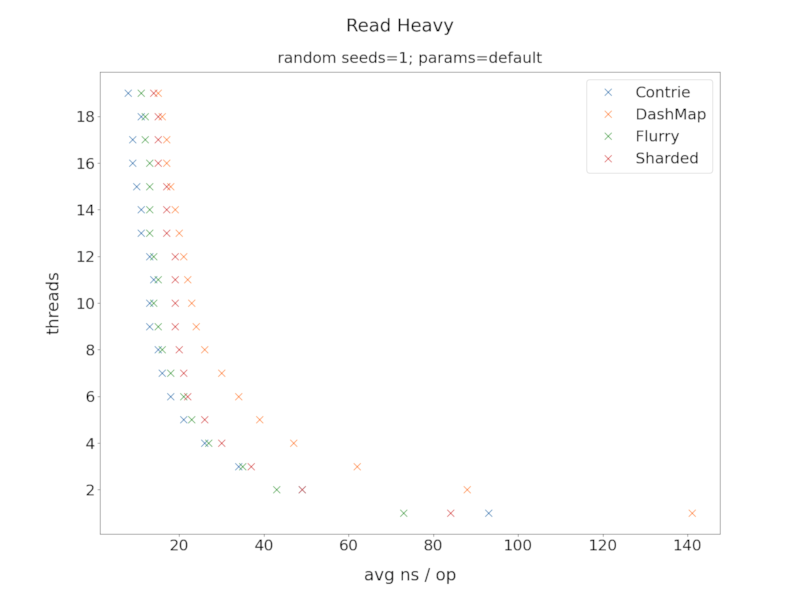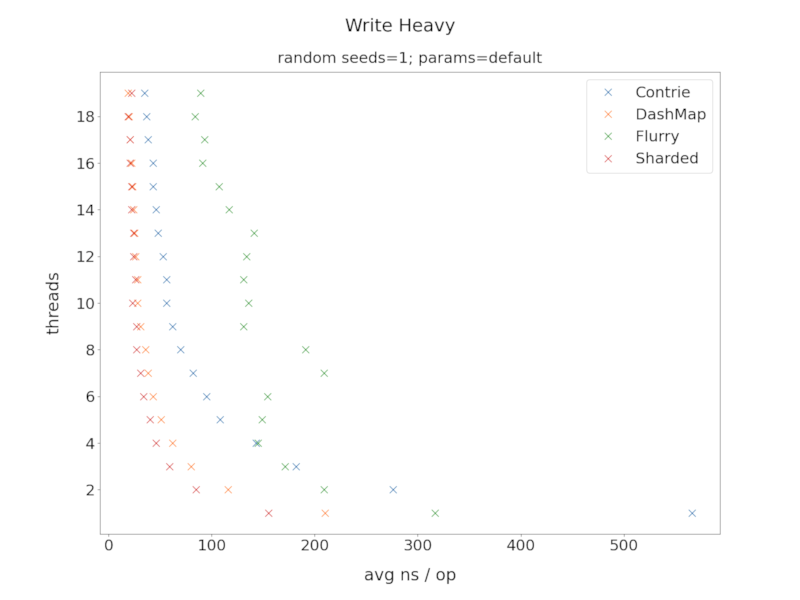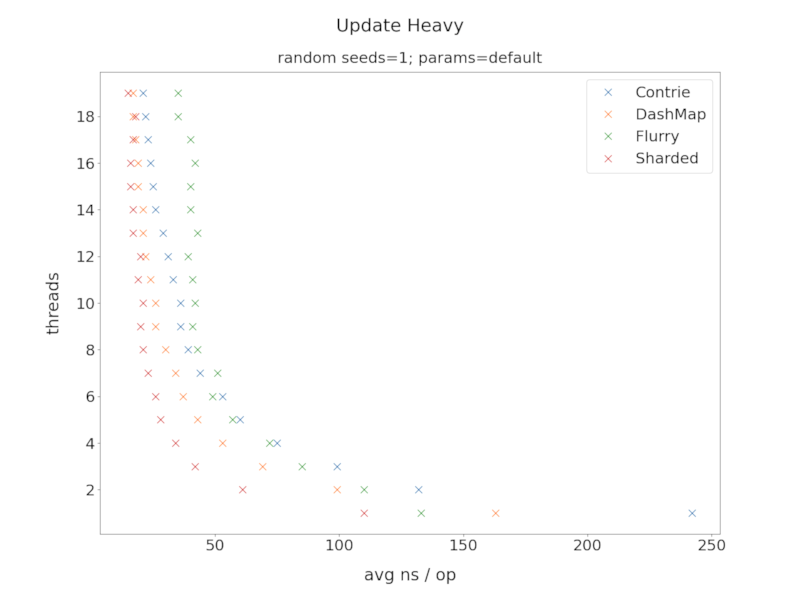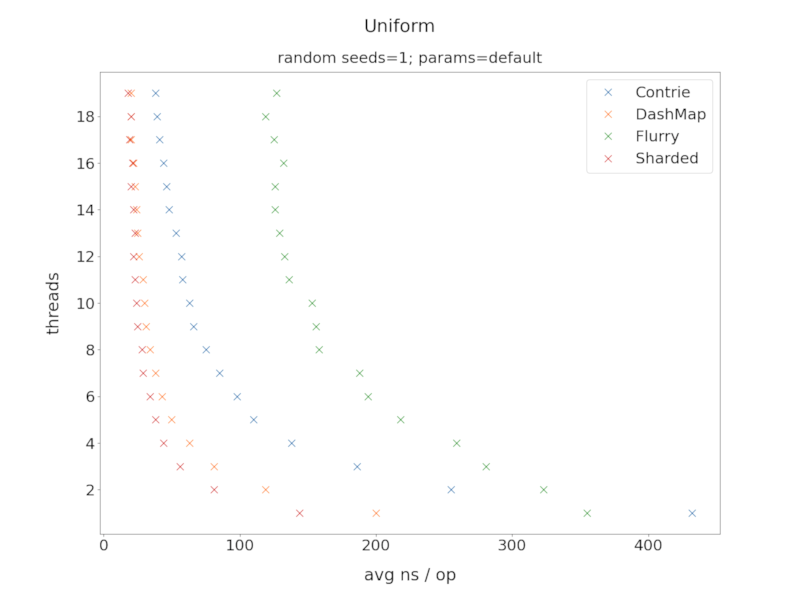10 releases
| 0.3.0 | Oct 26, 2024 |
|---|---|
| 0.2.1 | Jul 14, 2022 |
| 0.1.0 | Aug 27, 2021 |
| 0.0.6 | Oct 22, 2020 |
| 0.0.5 | Aug 20, 2020 |
#518 in Data structures
569 downloads per month
Used in scherben-map
22KB
283 lines
Note: This crate is still in early development and undergoing API changes. Contributions, feature requests, and constructive feedback are warmly welcomed.
sharded 

Sharded provides safe, fast, and obvious concurrent collections in Rust. This crate splits the
underlying collection into N shards each with its own lock.
For further reading on the strategy, see a write up on C++'s parallel-hashmap.
Features
-
Zero unsafe code. This library uses
#![forbid(unsafe_code)]and was motivated by the complexity and amount of memory errors present in many alternatives. -
Tiny footprint. The core logic is <100 lines of code. The two dependencies are
hashbrownandparking_lot. -
Really fast. This implementation may be a more performant choice than some of the most popular concurrent hashmaps out there. Try it on your workload and let us know.
See Also
- contrie - A concurrent hash-trie map & set.
- dashmap - Blazing fast concurrent HashMap for Rust.
- flurry - A port of Java's
java.util.concurrent.ConcurrentHashMapto Rust.
Quick Start
[dependencies]
sharded = "0.3"
Examples
Insert and retrieve values
let users = ConcurrentHashMap::new();
users.insert(32, "Henry");
assert_eq!(&"Henry", users.get(32).unwrap());
Performance Comparison
These measurements were generated using jonhoo/bustle. To reproduce the charts,
see the benchmarks directory. Benchmarks can be misleading. It is recommended to benchmark using a real application
workload.
Average Performance by Implementation
This ran each implementation over the presets in bustle::Mix for 5
iterations / random seeds using a Intel® Core™ i9-9820X. Lower numbers are better. Approaches using a single std::sync Lock and chashmap were discarded for clarity (they are
a lot slower). If you know why chashmap is so slow in this test, please help here.




Acknowledgements
Many thanks to
-
Reddit community for a few pointers and some motivation to take this project further.
-
Jon Gjengset for the live streams and utility crates involved
-
and countless OSS contributors that made this work possible
License
Licensed under either of Apache License, Version 2.0 or MIT license at your option.
Unless you explicitly state otherwise, any contribution intentionally submitted
for inclusion in sharded by you, as defined in the Apache-2.0 license, shall be
dual licensed as above, without any additional terms or conditions.
License: MIT OR Apache-2.0
Dependencies
~1–5.5MB
~20K SLoC